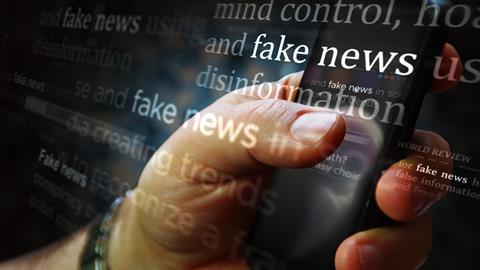Cry freedom – speech and its consequences
Liar in a Crowded Theater: Freedom of Speech in a World of Misinformation
Jeff Kosseff
£25, Johns Hopkins University Press
★★★★✩
Why do we have no UK free speech law? It is clearly cherished in the US as a fundamental right. This book analyses the various challenges to that entitlement in a world of ‘fake news’ and disinformation. The author is a cybersecurity law professor at the United States Naval Academy.
What is arguable is that freedom of expression and opinion are different from freedom of speech. In this country we can do what we want unless there is a law against it. In the US you can do what you have a legal right to do. Our two common law systems have diverged, leading to very different approaches. In the US sometimes bizarre circumstances have led to claims of entitlement to protection under the first amendment.
There was one case of a Walter Mitty-style official who made astonishing claims of a heroic military career; a newspaper that published misleading stock market information resulting in a fall in investment values; a false report of someone’s death, and even a false weather report and an unhealthy weight loss programme. In each case it was argued, not always successfully, that there was a first amendment defence. One wonders if a highwayman who demanded ‘Your money or your life!’ would have a defence under the first amendment.
This illustrates the difference between free speech, and free expression and opinion. I cannot see how the right can be extended to the liar, con-artist, crook or negligent expert (but then that is my opinion and I am entitled to express it).
Then there is the current debate about misinformation and fake news. Technology enables communication to be instant and easy to make look credible. AI will no doubt increase potential concerns. We have seen the political issues that have arisen from president Trump’s challenge to the result of the last election and also the stories, often made up, about Covid and its vaccines. What is chilling in the book is a campaign of misinformation about a judge alleging he was soft on paedophilia. Judges in the US are often political appointments.
It is interesting how this field of law has developed. US legal history has its stars such as Oliver Wendell Holmes and Louis Dembitz Brandeis. Interestingly, they provided the minority opinion in the Espionage Act case. It was their views which were highly influential in the development of future cases. (This is something I have discovered: legal innovations often start with minority decisions.)
This is a fascinating book. It offers an interesting view of legal issues in the US but also remains very relevant on this side of the Atlantic.
David Pickup is a partner at Pickup & Scott Solicitors, Aylesbury
Foundations of American contract law
James Gordley
£91, OUP
Lawyers often have little time to ponder the basic concepts we learned in our professional education. What is a tort? When does causation become so attenuated that it would be unfair to impose liability? What makes a contract enforceable? For such questions we have esteemed scholars such as James Gordley, a professor at Tulane Law School in Louisiana.
This is not a book to consult in hopes of determining whether a particular contract written under the law of a particular US state is enforceable. However, it is a readable guide to the key issues of contract law from a scholarly perspective, for those who can take a break from the daily grind.
Susan McFadden is a solicitor and US lawyer, retired from the London-based US immigration firm Gudeon & McFadden
































No comments yet